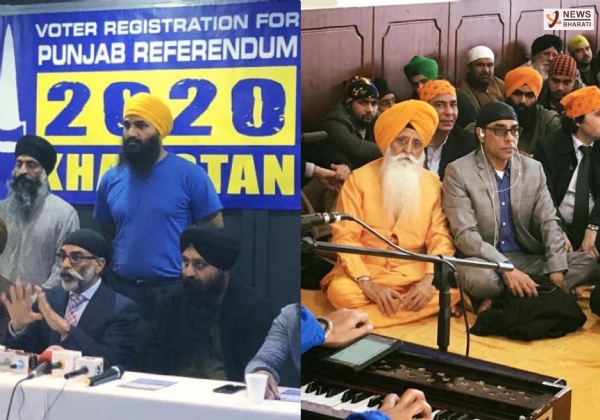NB Explains | British Political Analyst claims Dal Khalsa promoting Khalistan supporters in Europe
26 Apr 2023 15:21:22
London, Apr 26: British political analyst, Chris Blackburn raised concern over Dal Khalsa, who are promoting Khalistan supporters across Europe.

"Dal Khalsa is doing a lot of heavy lifting for the Khalistan movement in Europe. It's a blatant lie to say they aren't instrumental to the leadership of the movement. Their open ties to #Pakistan and their radicalism are the issues. Would you agree?" he tweeted. He also posted pictures of Dal Khalsa's events where Sikh for Justice (SFJ) leader Gurpatwant Singh Pannun was present.
According to Chris, on various occasions, Pannun has been seen with Dal Khalsa members campaigning for the referendum. Apart from India, he has tried to hold a Khalistan referendum abroad. Pannu has also threatened the political leaders of India and Punjab on different occasions. Pannun was among the founders of the US-based separatist organisation SFJ, which claims to be "an international advocacy and human rights group."
In 2019, India imposed a ban on SFJ for its separatist activities. It is associated with the secessionist campaign 'Referendum 2020', which sought to "liberate Punjab from Indian occupation." The Home Ministry's notification banning the SFJ under the Unlawful Activities (Prevention) Act, said: "In the garb of the so-called referendum for Sikhs, SFJ is actually espousing secessionism and militant ideology in Punjab, while operating from safe havens on foreign soils and actively supported by inimical forces in other countries."
Nearly a dozen cases are registered against SFJ and Pannun in India, including three sedition cases in Punjab. The recent surge in violence by Khalistan supporters in the UK is creating security challenges for Britain, as well as, radicalising the Sikhs in the country. Britain has seen a recent upsurge in activity by the Khalistan supporters, a faction of Sikh extremists. To many, even within the counter-extremism community, the Khalistanis are rather obscure, but it is a social and security challenge, with an international network operating, reported European Eye on Radicalization (EER).
In March this year, the Indian community in Britain erupted in anger following the vandalism of the Indian High Commission in London and the desecration of the Tricolour by Khalistani supporters. This led to an unprecedented outpouring of support from the diverse Indian community in Britain. In the last few months, the reach of the Khalistan supporters in Britain has made itself known. In February, the Independent Review of Prevent, the British counter-extremism program, by William Shawcross, warned of "pro-Khalistan extremism emerging from the UK's Sikh communities".
Shawcross recorded that the Khalistanis were inciting Sikhs in Britain against the government, spreading misinformation that the British government was repressing Sikhs and helping the Indian government do the same in India, while "glorify[ing] violence carried out by the pro-Khalistan movement in India". This was, said Shawcross, "a potentially toxic combination for the future," reported EER.
Meanwhile, the investigation is going into the vandalism of the Indian High Commission in London. The investigation should not focus solely on how this one event happened, but on the broader environment that led up to it and correcting the missteps that led to this threat being neglected for too long, reported EER.
--
